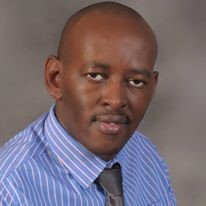Why Kenya, Uganda and Tanzania Should Set Up Sovereign Wealth Funds

By Joe Watson Gakuo
Back in October 1962, a company by the name Phillips Petroleum applied for permission to the Norwegian government to explore for oil and gas in the North Sea. After a while and just before Christmas of 1969, the company announced the discovery of Ekofisk, which turned out to be the largest offshore oilfield ever discovered. This was when Norway’s success story started in earnest.
Norway is credited by having the largest sovereign wealth fund in the world, and with over $1 Trillion, this equates to $190,000 for each of the country’s 5.2 million citizens. To put it into perspective, each person in Norway would get Kshs.19 Million each were it to be dissolved and funds re-distributed.
A few years ago, the Presidential Task Force on Parastatal Reforms proposed the establishment of Kenya’s sovereign wealth fund. This report was presented to President Uhuru Kenyatta on October 2013.
In Kenya, and in line with this, the government through Treasury drafted the Kenya National Sovereign Wealth Fund (SWF) Bill whose main aim is to ensure that there is proper management of the proceeds from oil, gas and mining industries. This would lay the legal framework for managing the oil and gas wealth from the discovered resources. A seed capital of Kshs.10 billion was injected into the fund.
The bill proposes the establishment of three main funds within it; stabilization fund, infrastructure and development fund, and a future generation fund. Unfortunately, the bill is yet to be enacted into law.
The development of the upstream oil and gas industry, as well as mining sector requires forward thinking in terms of policy. I argue that the setting up of the oil and gas wealth fund by the East African countries is a step in the right direction, and I have three reasons for this;
Firstly, it would provide a clear way in which to invest the revenues from oil, gas and minerals both for the current and future generations. The setting up of a Stabilization Fund will work as a counter-cyclical economic stabilizer which will help in smoothening a country’s budget variations in income over a period of time.
Secondly, it will support the funding of infrastructure in the country. As growing and emerging economies, East Africa has major deficit in the requisite infrastructure. Availability of an Infrastructure and Development Fund will provide the financial resources required for huge infrastructural investments. For example, the region’s funding gap for the public-private partnership infrastructural projects alone is estimated at $100 billion over the next couple of years. The revenues from oil, gas and minerals can help in closing these gaps.
Thirdly, the fund will address the issues of intergenerational equity. It will make available a pool of savings or some level of a back-up for the future generations. This is very important because these resources are non-renewable.
The above benefits will cut across various sectors due to the multidimensional nature of the interventions that the wealth fund provides. The multiplier effect of this will be huge to the economy and every citizen will feel the benefits.
On the other end of the spectrum are those who view having an SWF a bad idea, because they have a very poor record of return on investments. As a country, our current deficit is very high and so is our debt to GDP ratio which has averaged at 53.74 per cent from 1998 to 2017. We have huge number of our citizens, especially the youth in unemployment. This begs the question, is it morally right to save for the future as you starve today? For example, Nigeria which has an SWF with billions in it runs a budget deficit yet a majority of its people suffer. The country actually sometimes runs out of their petroleum products making people queue for days in petrol stations, yet they are an oil producing nation.
Kenya and East Africa in general must strike a balance between pressing social needs of today, and investing in the future.
Joe Watson Gakuo is the Chief Executive Officer at Upstream Oil & Gas Ltd. Email: jwatson@upstreamgrp.com.



